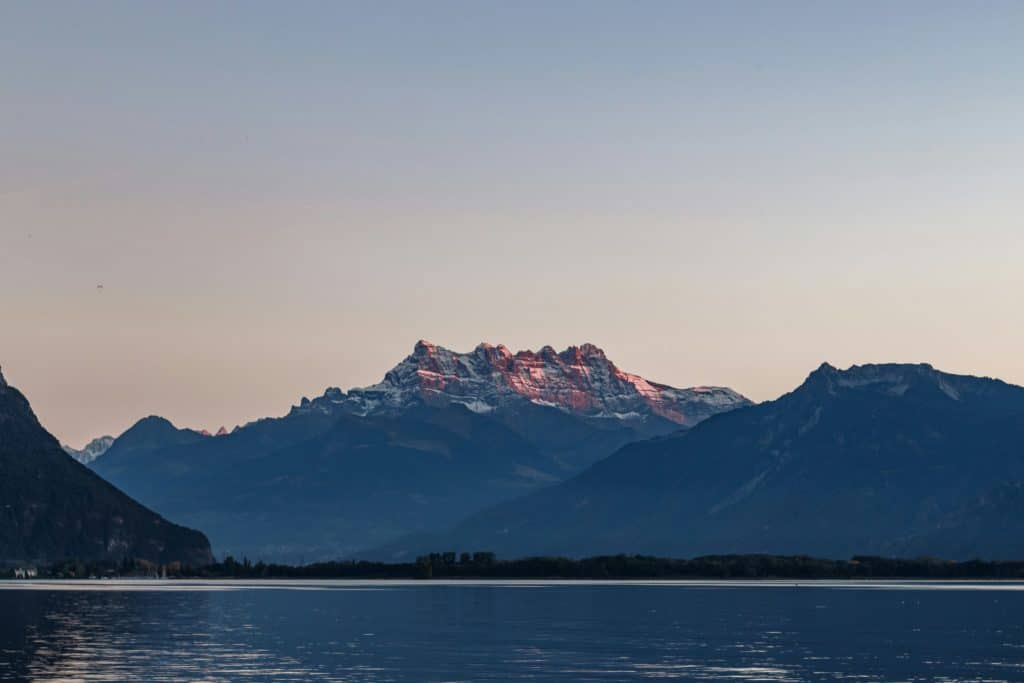Remember the 𝗠𝗼𝘂𝗹𝗲 𝗾𝘂𝗮𝗴𝗴𝗮? We introduced it to you last week. This mussel, which was rare in our region just a few years ago, is becoming increasingly popular. And with good reason! We told you about its extraordinary ability to adapt to different environments. We promised you the rest of its story, so here it is:
The quagga can colonise around 𝘁𝗼𝘂𝘁𝗲𝘀 𝗹𝗲𝘀 𝘀𝘂𝗿𝗳𝗮𝗰𝗲𝘀 𝗱𝗶𝘀𝗽𝗼𝗻𝗶𝗯𝗹𝗲𝘀: from rocks to boat hulls, but also plant remains or 𝗯𝗼𝘂𝗲! It does not need a solid substrate to attach itself. Several quagga can even 𝘀'𝗮𝗴𝗴𝗹𝘂𝘁𝗶𝗻𝗲𝗿 each other, giving them the ability to completely cover a space.
Unfortunately, its abundance has 𝗶𝗺𝗽𝗮𝗰𝘁𝘀 𝗲́𝗰𝗼𝗻𝗼𝗺𝗶𝗾𝘂𝗲𝘀 𝗲𝘁 𝗲́𝗰𝗼𝗹𝗼𝗴𝗶𝗾𝘂𝗲𝘀 𝘁𝗿𝗲̀𝘀 𝗴𝗿𝗮𝘃𝗲𝘀.
As it settles everywhere, it generates 𝗱𝗲́𝗴𝗮̂𝘁𝘀 𝗶𝗺𝗽𝗼𝗿𝘁𝗮𝗻𝘁 for 𝘁𝗿𝗮𝗶𝘁𝗲𝗺𝗲𝗻𝘁 𝗱𝗲 𝗹'𝗲𝗮𝘂 or drinking water pumping installations, as it clogs the pipes. It also disturbs turbines or 𝗳𝗶𝗹𝗲𝘁𝘀 𝗱𝗲 𝗽𝗲̂𝗰𝗵𝗲𝘂𝗿𝘀 and can sink boundary or mooring buoys by catching on them. All this infrastructure has to be cleaned frequently, which generates 𝗰𝗼𝘂̂𝘁𝘀 𝗲́𝗻𝗼𝗿𝗺𝗲𝘀.
But it's even more serious than that! Being highly prolific, it threatens native species and biodiversity: it attaches itself to 𝗱'𝗮𝘂𝘁𝗿𝗲𝘀 𝗯𝗶𝘃𝗮𝗹𝘃𝗲𝘀 𝗼𝘂 𝗰𝗿𝘂𝘀𝘁𝗮𝗰𝗲́𝘀, preventing them from feeding, breathing or digging shelter : certain species of bivalves are therefore increasingly 𝗿𝗮𝗿𝗲𝘀 in Lake Geneva. It also takes 𝗹𝗮 𝗽𝗹𝗮𝗰𝗲 𝗱'𝗮𝘂𝘁𝗿𝗲𝘀 𝗲𝘀𝗽𝗲̀𝗰𝗲𝘀 that might settle in the same places as it does.
The presence of the Quagga Mussel has a few advantages: it serves as 𝗻𝗼𝘂𝗿𝗿𝗶𝘁𝘂𝗿𝗲 for fish and some diving birds. It can also be used 𝗱'𝗵𝗮𝗯𝗶𝘁𝗮𝘁 for small crustaceans, such as gammarids. What's more, it filters water very well and helps to improve the 𝘁𝗿𝗮𝗻𝘀𝗽𝗮𝗿𝗲𝗻𝗰𝗲 𝗱𝗲 𝗹'𝗲𝗮𝘂, encouraging plant growth deep down.
The Moule quagga is 𝘂𝗻𝗲 𝗲𝘀𝗽𝗲̀𝗰𝗲 𝗶𝗻𝘃𝗮𝘀𝗶𝘃𝗲, so monitored, but unfortunately cannot be eliminated from the waterholes it has already invaded. On the other hand, it is essential to 𝗽𝗿𝗼𝘁𝗲́𝗴𝗲𝗿 𝗹𝗲𝘀 𝗽𝗹𝗮𝗻𝘀 𝗱'𝗲𝗮𝘂 which have not yet been colonised.
First and foremost, it is essential that lake users (sailors, paddlers, divers, etc.) are aware of the importance of the lakes.) 𝗻𝗲𝘁𝘁𝗼𝗶𝗲𝗻𝘁 𝗯𝗶𝗲𝗻 𝗹𝗲𝘂𝗿 𝗺𝗮𝘁𝗲́𝗿𝗶𝗲𝗹 𝗼𝘂 𝗹𝗲𝘂𝗿 𝗲𝗺𝗯𝗮𝗿𝗰𝗮𝘁𝗶𝗼𝗻 when moving from one body of water to another, to avoid transporting mussel larvae or other invasive species.

Information taken from Lémaniques n°113 and the CIPEL
Photo credit: Net'Léman - ASL and Pascal Mulattieri


